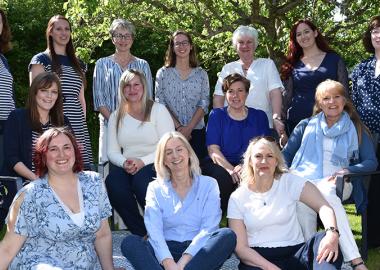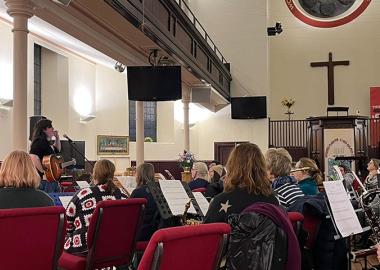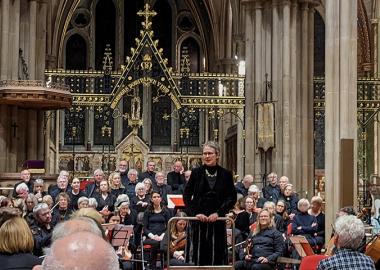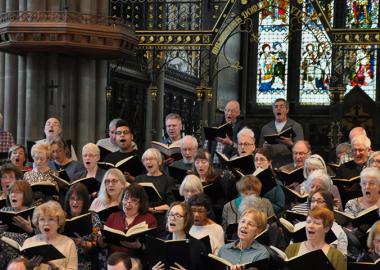Our first meeting, where each of my fellow composers were assigned an adoptive ensemble, had been in September. With cheeks rosy from the summer's play, we had all dressed smartly, just like the first day of school, and we felt excited and relieved to have been given our pairings. As the days have shortened, it is now time to knuckle down to the serious work of writing the music.
I am travelling to Doncaster to gather the choir's own research, like making a basket of autumn's last berries that will see me through to our next meeting in the depths of far-off January. As I race through the Kent countryside, I wonder how the choir are feeling about this project. I remember performing choral music written for the Kent Youth Choir in Rochester Cathedral. We never met the composer or even had his thoughts or methods explained to us. It took a long time to learn, and I recall feeling quite 'in the dark' about the music, somewhat unconnected to it. The aim of my visit today is to shed light on how I write my music and to encourage the choir members to experience my methods for themselves, hopefully generating some of the material I will ultimately use, so they are not only performing the piece but creating it alongside me.

After my initial visit, I felt sure that the piece should take Doncaster Market as its subject. It was the first venue anyone could think of and, for me, it is a symbol not only of the town's glorious past but also the sheer steadfastness that must give it hope for the future. It sits comfortably at the town's centre, which in turn sits at the centre of England itself. It comprises of a generous-sized plot with an unpretentious array of stalls, some owned by the same family for generations, and some by the newest arrivals in Doncaster from the most exotic reaches of Europe. Eggs from an uncle's back garden, clothes manufactured locally, fish from Grimsby, olives from Greece, bananas from the Caribbean.... So it goes on, spreading ever outward from its centre of centres. It has survived fire, Roman invasion, and the arrival of online shopping. Even when Frenchgate Shopping Centre is rusting into the earth, the stone-built market and its facilitation of the human need to trade will still be standing.
It is always a pleasure to see Janet, the Quirky Choir's quirky leader, and today she is really helpful in advising me how to tackle the material I have brought. The choir have brought me things too: photographs, poems, written history, haberdashery, honey and recorded interviews to feed my imagination. We discuss their research and I take them through my working methods. They interview each other about their experience of the market: hate it or love it, everyone has a story about it. I listen and then we find the rhythms and accents in their texts. We tentatively add tunes; some brave souls sing for the group.
We both went to the cattle market. I liked prodding the cattle. The smell and, erm, the rhythmic sound of the auctioneer. The smell and muddy boots.
I explain how I like to leave in the natural pauses, repetitions and 'erm's. I leave the everyday imperfections in, so that the work has a disarmingly natural cadence with which to draw the listener close. This is not the type of poetry usually deployed in classical music, but the instant poetry blossoming in daily conversation, courtesy of the Yorkshire accent and attitude.
My intention is for the piece to grow with the same bustling solidity as the market itself. We sing the last section from the most recent piece I have written, so that the choir can see how their interviews might end up sounding in the final composition. I can sense that it is a bit confusing and some degree out of their comfort zone. I have sympathy for them. It's not like anything they have heard or sung before. Hopefully, these workshopping sessions will help them understand and appreciate whatever we come up with, to feel connected to what they are doing. I want the inclusion of their own words to have the effect of giving them a voice in more ways than one.
The winter will be spent working in the luminous glow of my computer screen, but as the new year arrives, I hope to bring them back my own harvest: the seeds of a new piece of music.









